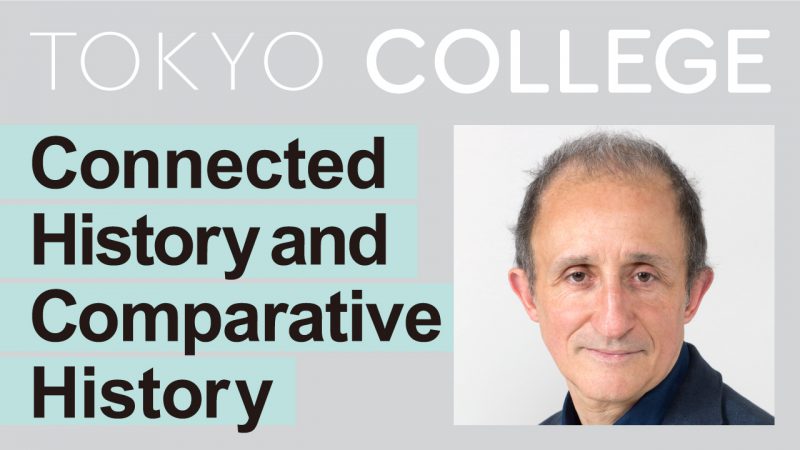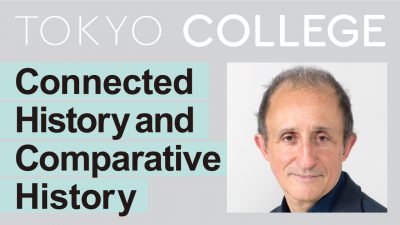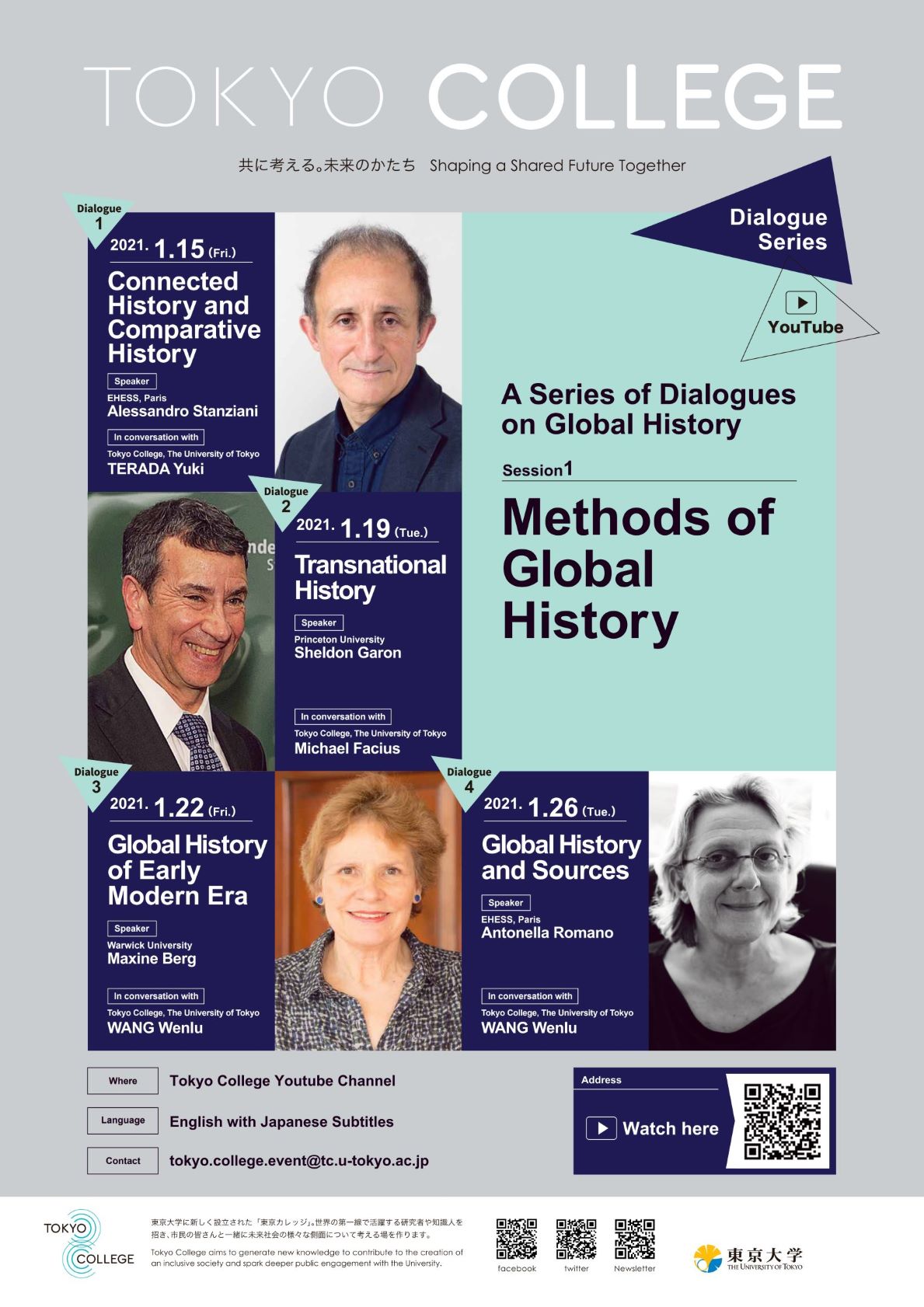【Session 1 Methods of Global History】 Dialogue 1 Connected History and Comparative History | Guest: Alessandro Stanziani

A Series of Dialogues on Global History - Prologue and Session1 Dialogue1 are available to watch online
| Date(s) | Friday, 15 January 2021 (Available from 17:00 JST) |
|---|---|
| Venue |
Tokyo College YouTube Channel (https://youtube.com/playlist?list=PLeE49Q0gSqn17IRqCa0_N109nhcXk8sZ4) |
| Language | English (with Japanese Subtitle) |
| Abstract |
A Series of Dialogues on Global History What is global history, a new trend of historical studies? Global historians and junior researchers at Tokyo College exchange their ideas on the meaning and the potential of global history. Global History’s methods, effective topics and positionality of historians will be also discussed. |
| Program |
Prologue Introduction Speaker HANEDA Masashi (Tokyo College, The University of Tokyo)
Session 1 Methods of Global History Dialogue 1 Connected History and Comparative History Speaker Alessandro Stanziani (EHESS, Paris) In conversation with TERADA Yuki (Tokyo College, The University of Tokyo)
|
| Organized by | Tokyo College, The University of Tokyo |














